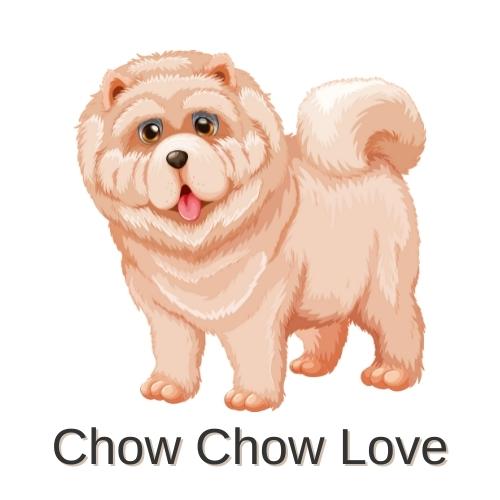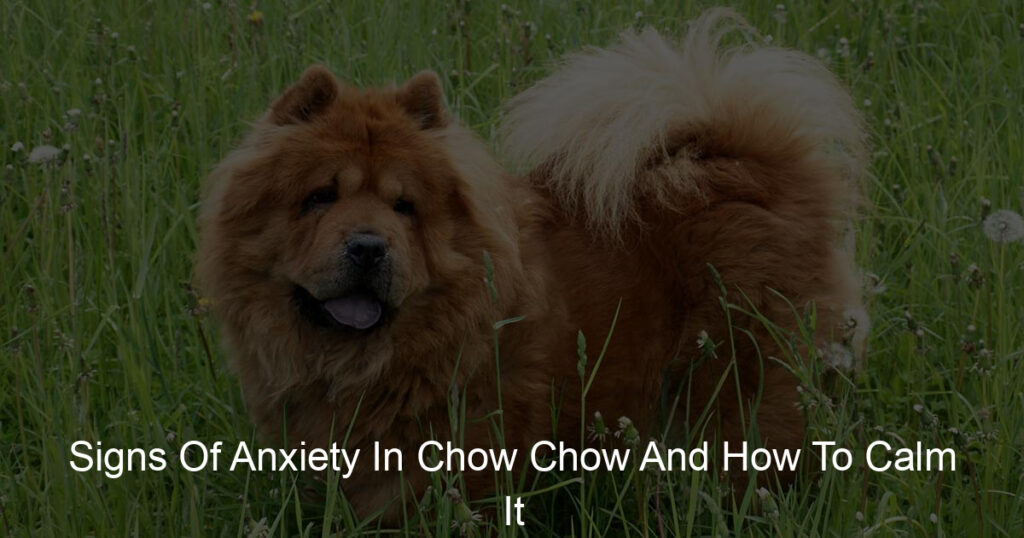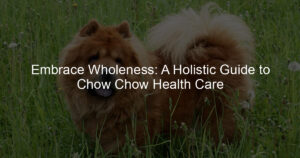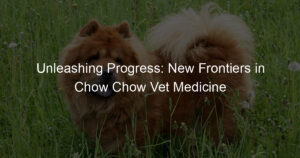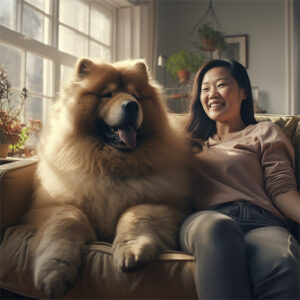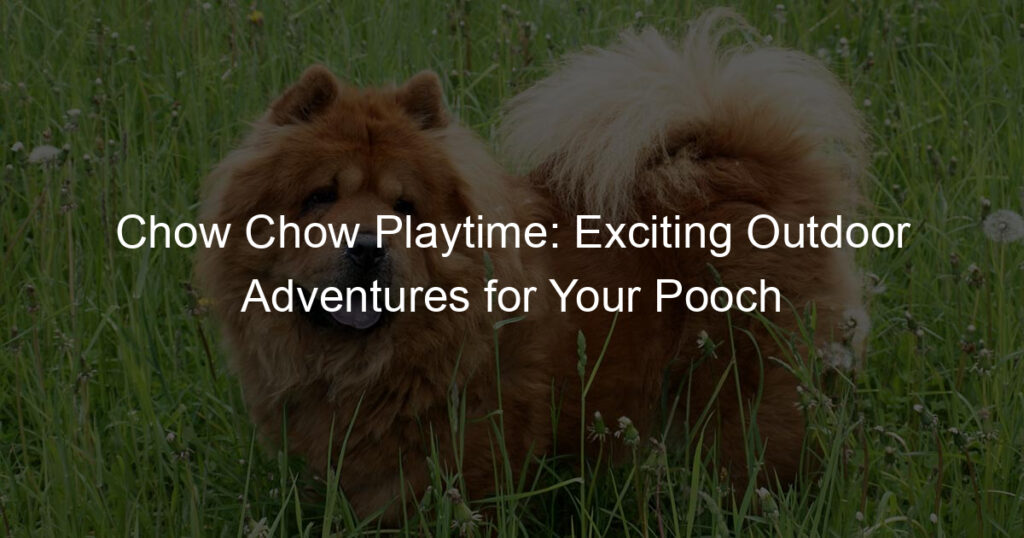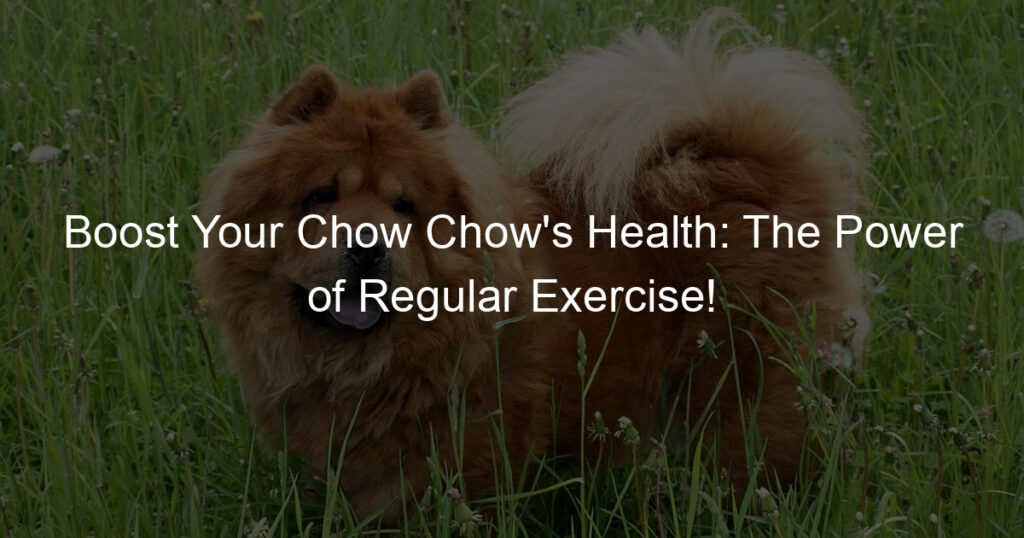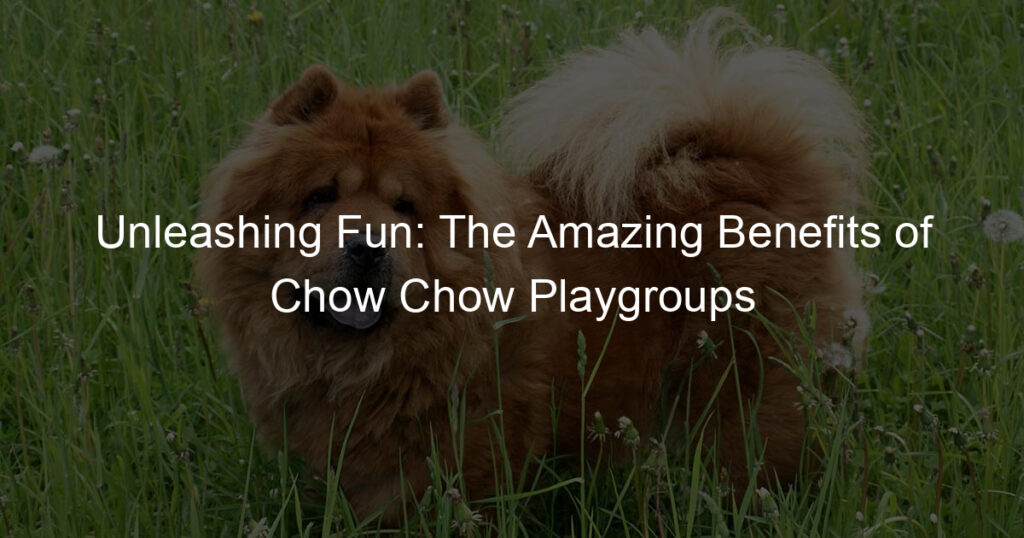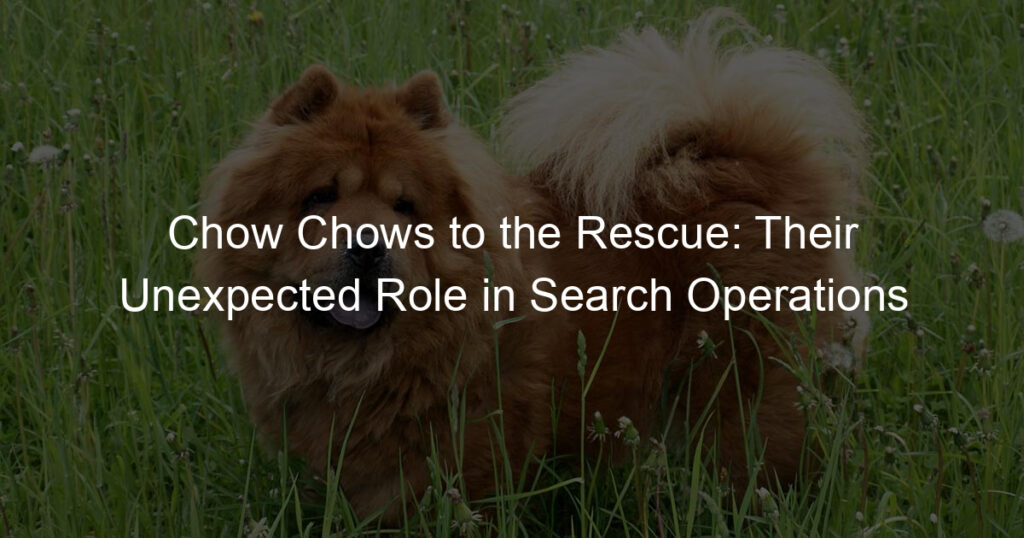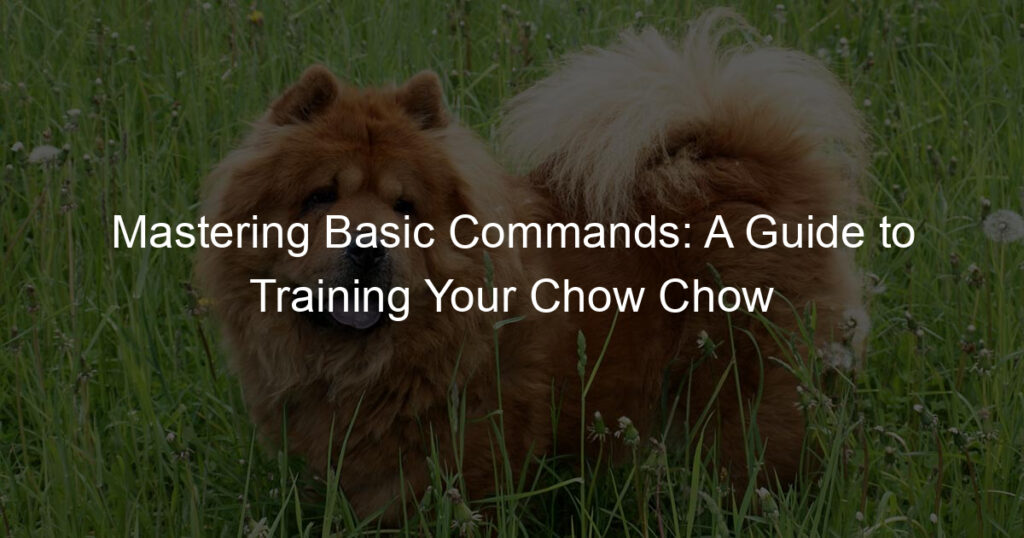Chow Chows are known for their lion-like appearance and loyal temperament, but they can also experience anxiety just like any other dog breed. Anxiety can manifest in various ways, and understanding the signs is crucial for the well-being of your furry friend.
In this article, we will explore the signs of anxiety in Chow Chow and how to calm it.
It is important to recognize the common signs of anxiety so you can take early action and potentially prevent any long-lasting issues. Familiarizing yourself with the potential causes of anxiety can help you better understand your Chow Chow’s behavior and make it easier to find the most suitable solutions.
Moreover, knowing when to seek veterinary advice can be crucial for effectively managing your dog’s anxiety, ensuring a happy and stress-free life for both you and your pet.
Key Takeaways:
- Recognize the signs of anxiety in Chow Chows to take timely action
- Understand the causes and types of anxiety disorders to find the best solutions
- Determine when to seek professional help and prioritize your pet’s well-being
Signs Of Anxiety In Chow Chow And How To Calm It
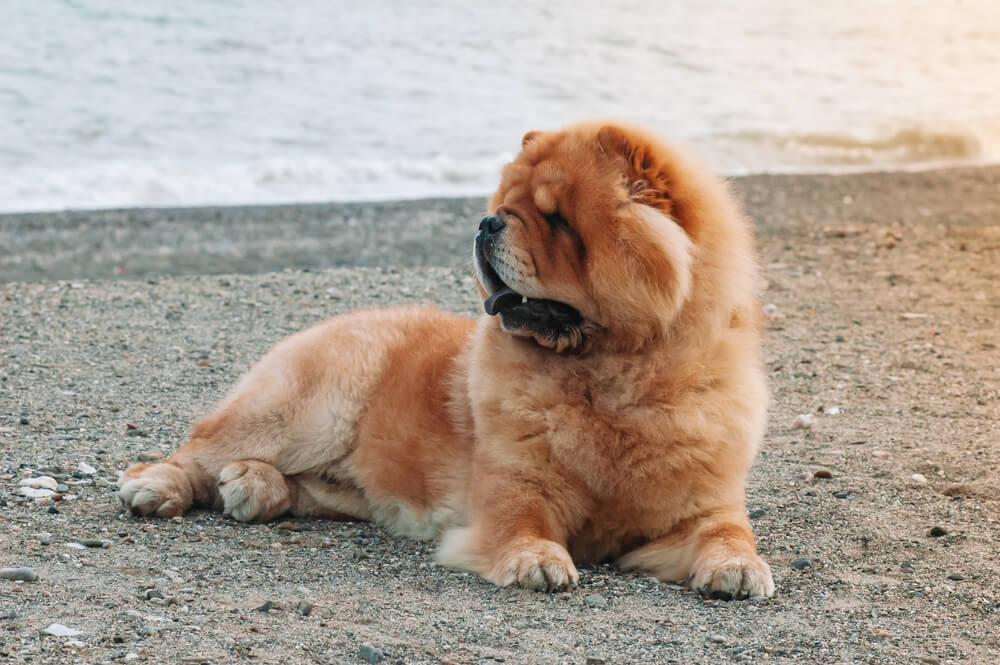
When dealing with an anxious Chow Chow, it is essential to understand the common signs of anxiety and learn how to address them.
In this section, we will explore both the behavioral changes and physical symptoms that may indicate your dog is experiencing anxiety.
Behavioral Changes
Anxiety can manifest in various behavioral changes in your Chow Chow. These may include:
- Excessive barking or whining: Anxious dogs may vocalize more than usual, trying to communicate their distress.
- Pacing or restlessness: Your dog may appear agitated and pace around the house or yard.
- Excessive licking or self-grooming: This can be a coping mechanism for stress and may result in skin irritation or hair loss.
- Displacement behavior: In times of anxiety, Chow Chows may display behaviors such as licking their lips, sniffing the air, or “shaking it off.”
- Changes in appetite: Stress can lead to changes in eating habits, such as a loss of appetite or increased consumption of food.
Physical Symptoms
In addition to behavioral changes, there are also physical symptoms to be aware of when dealing with an anxious Chow Chow:
- Shivering or trembling: Look for signs of shivering or trembling, as these can be indicators of anxiety or stress.
- Panting: Rapid, shallow breathing may occur during times of heightened anxiety.
- Tucking the tail: A tucked tail is a common sign of fear or stress in dogs.
- Dilated pupils: Watch for widened pupils, which can be a sign of anxiety or heightened arousal.
In conclusion, understanding the common signs of anxiety in your Chow Chow will help you better identify when your dog is under stress and provide the necessary support to keep them calm and comfortable.
Understanding Causes of Anxiety in Chow Chows
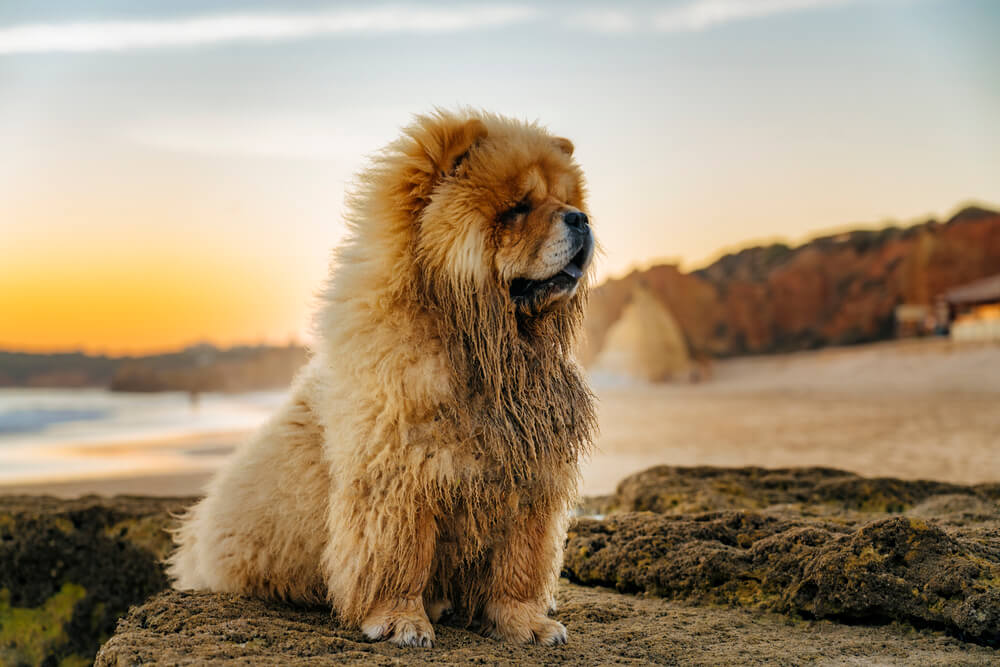
Chow Chows are known for being independent and strong-willed dogs, but they can be prone to anxiety. Understanding the causes of anxiety in your Chow Chow is essential to help them feel more comfortable and confident.
In this section, we’ll explore the potential causes of anxiety in your Chow Chow, dividing them into two sub-sections environmental triggers and health-related causes.
Environmental Triggers
Chow Chows can be sensitive to changes in their environment, resulting in increased anxiety. Some environmental triggers for anxiety include:
- Moving to a new home: Changes to your Chow Chow’s living environment can cause stress and anxiety. Make sure your pet has plenty of time to adjust and to feel safe in their new surroundings.
- Loud noises: Sudden or ongoing loud noises, such as fireworks or construction work, can be anxiety-provoking for Chow Chows. Find a quiet space or use noise-canceling products to help your dog feel more at ease.
- Separation: Chow Chows may experience separation anxiety when left alone for long periods. Gradually increasing the amount of time spent alone and providing stimulating toys can help reduce their anxiety.
- New people or pets: Introducing new people or animals to your Chow Chow may cause them to feel threatened or overwhelmed. Take things slowly and monitor your dog’s reactions to ensure they feel comfortable with the new additions.
Health-Related Causes
In some cases, anxiety in Chow Chows may be linked to underlying health issues. These can include:
- Hypothyroidism: This condition is common in Chow Chows and can cause symptoms such as weight gain, lethargy, and hair loss, which may contribute to anxiety. Regular blood tests and daily medication can help manage this condition effectively.
- Pain or discomfort: Your Chow Chow may be experiencing anxiety due to physical pain or discomfort, which can stem from various factors, such as joint issues or allergies. Consult with your veterinarian to identify and treat any potential physical problems.
- Neurological issues: Some anxiety in Chow Chows can be attributed to neurological problems. In these cases, your veterinarian may recommend further testing to determine an appropriate treatment plan.
By understanding the potential causes of anxiety in your Chow Chow, you’ll be better equipped to help them cope with stressors and provide a safe, comfortable environment for your pet.
Different Types of Anxiety Disorders
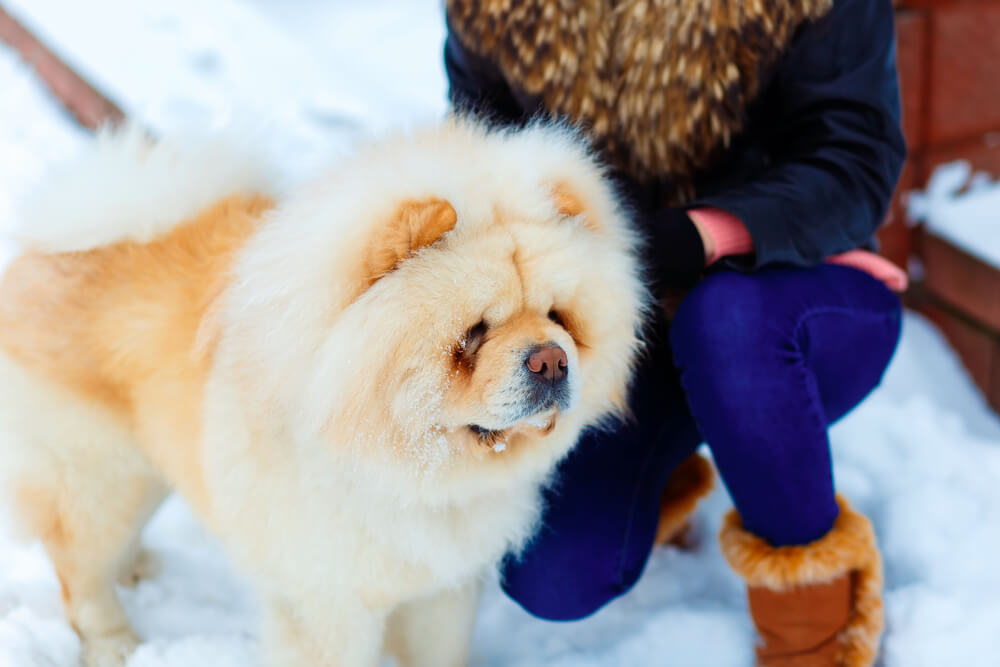
Anxiety disorders can manifest in various forms and affect people differently.
In some cases, your Chow Chow might display signs of anxiety, similar to humans. It’s important to be aware of the different types of anxiety disorders to better understand and care for your furry friend.
Generalized Anxiety Disorder (GAD) can be characterized by excessive, long-lasting worry and fear concerning everyday situations. Just like humans, your Chow Chow may show signs of nervousness and agitation, even when there is no specific threat.
Separation Anxiety is commonly observed in dogs, including Chow Chows, when they are left alone for an extended period. This type of anxiety may lead to destructive behavior, excessive barking, or other signs of distress when you’re not around.
Social Anxiety or Agoraphobia can also affect dogs. Your Chow Chow may display fear or avoidance in new situations or around unfamiliar people and animals. This type of anxiety can cause them to become withdrawn or aggressive.
Panic Disorder is another form of anxiety that may affect your Chow Chow. This disorder causes intense fear and panic, often accompanied by physical symptoms like rapid breathing and increased heart rate.
Specific Phobias involve a strong, irrational fear of certain objects or situations. For your Chow Chow, this could mean fear of loud noises, water, or new environments.
Now that you have a basic understanding of the different types of anxiety disorders, you can pay close attention to your Chow Chow’s behavior and seek appropriate help if needed.
Remember that calming an anxious Chow Chow involves patience, care, and sometimes professional intervention.
How to Calm an Anxious Chow Chow
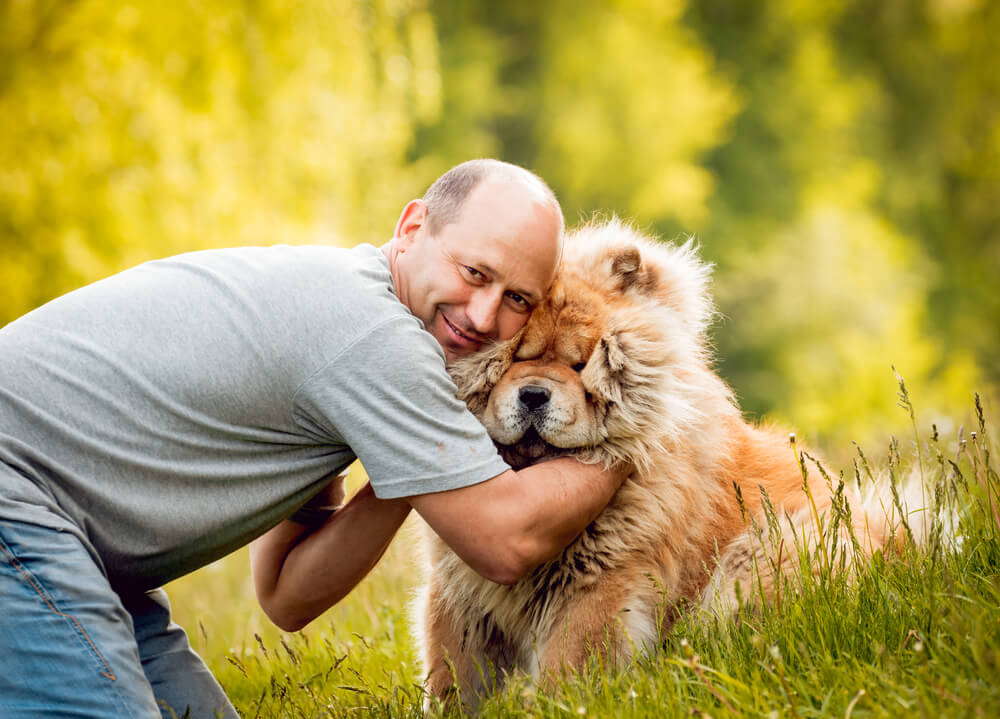
Training and Behavior Modification
To help your Chow Chow overcome anxiety, it’s essential to focus on training and behavior modification. Start by introducing your dog to a consistent routine, which can provide them with a sense of security and predictability.
Regular exercise, such as daily walks, can also alleviate stress and excessive energy.
Implement positive reinforcement by rewarding calm behavior with praise, treats, or toys. This will encourage your Chow Chow to repeat the relaxed behavior in the future.
It’s vital to avoid punishing your dog for displaying anxiety, as this may worsen their fear and stress.
Medical Treatments
If your Chow Chow’s anxiety persists, it may be necessary to explore medical treatments. Consult your veterinarian for a thorough assessment of your dog’s anxiety and discuss whether medication might be appropriate.
The vet may prescribe anti-anxiety medications, such as benzodiazepines or selective serotonin reuptake inhibitors (SSRIs), to help your Chow Chow manage their anxiety symptoms.
Keep in mind these medications should be used in combination with behavior modification techniques, and you should work closely with your veterinarian to monitor your dog’s progress.
Alternative Therapies
Consider trying alternative therapies to help your Chow Chow feel more at ease. One possibility is hemp oil, which has been reported to help some dogs with anxiety. Make sure to consult your veterinarian before administering any alternative treatments to your dog.
Another technique you can try is using calming aids, such as pheromone diffusers or calming collars, that emit dog appeasing pheromones. These pheromones mimic the scents released by a nursing mother dog to comfort and soothe her puppies, which can also have a calming effect on adult dogs.
Lastly, you may also explore options such as massage, aromatherapy, and gentle music to create a relaxing environment and reduce your Chow Chow’s anxiety.
Preventing Anxiety in Chow Chows
Establishing Routine
Establishing a consistent routine can significantly help prevent anxiety in your Chow Chow. Chow Chows thrive on predictability, so try to create a daily schedule that includes regular feeding times, walks, and play sessions.
Consistency in training and house rules is also crucial – your Chow Chow should know what to expect from you and their environment.
A predictable routine can be comforting for Chow Chows, helping them feel safe and secure. Remember to also plan for gradual changes in routine whenever possible, such as when you’re adjusting their walking schedule or leaving them alone for longer periods.
Gradual changes can help your Chow Chow adapt more easily and reduce potential anxiety.
Providing Mental and Physical Stimulation
Chow Chows need both mental and physical stimulation to maintain their overall well-being. Ensuring they receive adequate exercise, engaging play sessions, and mental challenges can help prevent anxiety in your dog.
For physical stimulation, daily walks and playtime in the yard or park can help keep your Chow Chow’s energy in check. If your dog enjoys fetch or chasing toys, these can be great activities to incorporate into their exercise routine.
Regular walks also provide mental stimulation, as your Chow Chow can explore various scents and the environment.
In addition to physical exercise, consider providing mental stimulation through interactive toys, puzzle feeders, and obedience training. These activities can help challenge your Chow Chow’s mind and keep them mentally engaged.
By supplying your Chow Chow with sufficient mental and physical stimulation, you can help prevent anxiety by reducing stress, boredom, and pent-up energy.
When to Seek Veterinary Help
Sometimes, calming techniques and remedies may not be enough to alleviate your Chow Chow’s anxiety. It’s essential to know when to seek professional help from your veterinarian.
Here are a few situations that warrant a visit to the vet:
If your Chow Chow’s anxiety symptoms persist despite your consistent efforts to soothe and calm them, it’s time to consult your vet. Persistent and unmanaged anxiety can lead to detrimental health issues or worsen existing conditions.
A veterinarian can help determine if there’s an underlying cause for the anxiety, such as hypothyroidism or other medical issues that may require treatment.
In case your Chow Chow exhibits any severe symptoms such as self-harm, uncontrollable shaking, or unexpected aggression, it’s crucial to seek immediate veterinary assistance.
These behaviors might indicate a more serious problem that needs to be addressed as soon as possible. Your veterinarian may suggest medical intervention or further tests to identify the root cause and provide a tailored treatment plan for your dog.
Additionally, if your Chow Chow starts showing signs of difficulty breathing, this could be a red flag that their anxiety has escalated to a dangerous level. In such cases, it’s essential to rush your dog to the vet for immediate attention.
Remember that your Chow Chow relies on you to ensure their well-being and health. Always consult your veterinarian when you are unsure of how to handle your dog’s anxiety. They are equipped with the knowledge and expertise to guide you in providing the best care and support for your furry companion.
Conclusion: Managing Anxiety in Your Chow Chow
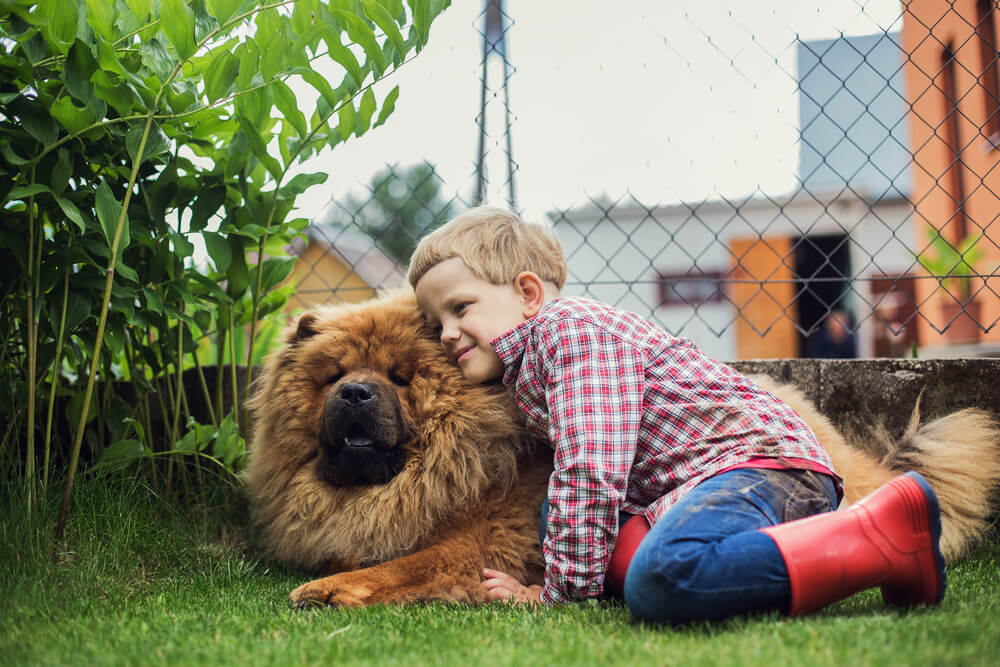
In order to manage anxiety in your Chow Chow, it is essential to first identify the triggers that cause them stress. Some common triggers include encountering other dogs, strangers approaching, or loud noises. Observing your dog closely will help you determine the specific situations that provoke their anxiety.
Once you have identified your Chow Chow’s triggers, you can begin implementing various calming techniques. One such technique is experimenting with hemp oil to help ease their anxiety. Many dog owners have reported success using hemp oil, with approximately 67% stating that it has been effective in helping their dog’s anxiety.
It is also important to approach training your Chow Chow with patience, perseverance, and a lot of repetition, as they may not respond well to harsh or forceful methods.
Working on establishing a strong bond and trust with your pet will ensure a positive relationship and enable you to better manage their anxiety.
Lastly, do not forget to consult your veterinarian if you notice any persistent signs of anxiety in your Chow Chow. They may be able to provide further guidance and suggest additional treatment options tailored to your dog’s needs.
With the right approach and support, you can improve your Chow Chow’s overall well-being and help them cope with anxiety more effectively.
Frequently Asked Questions
What are common symptoms of anxiety in Chow Chows?
Anxiety in Chow Chows can manifest in various ways such as excessive barking, panting, pacing, and destructiveness. They may also show signs of aggression, clinginess, and attempt to escape.
It is crucial to pay attention to your dog’s body language and behavior to identify if they are experiencing anxiety.
How can you recognize stress in your Chow Chow?
Recognizing stress in your Chow Chow involves observing their behavior and identifying any sudden changes. Look for signs such as excessive licking of lips, yawning, trembling, and pupil dilation.
Your dog may also exhibit stiffness and avoidance behaviors, like not making eye contact or turning their head away. It is essential to monitor your Chow Chow’s response to specific situations or events which may trigger stress.
What are effective techniques to soothe a Chow Chow’s anxiety?
There are several methods to soothe your Chow Chow’s anxiety, including experimenting with hemp oil, providing a comfortable and safe environment, and offering mental and physical stimulation through exercise and play.
You can also consider training techniques like desensitization and counter-conditioning, as well as consulting your vet or a certified dog behaviorist for professional guidance.
Are Chow Chows more likely to experience anxiety than other breeds?
Anxiety can occur in any breed; however, each dog’s temperament and individual circumstances play a significant role. While Chow Chows may not be inherently more likely to experience anxiety than other breeds, their independent and protective nature might make it more challenging to manage their anxiety when it does occur.
How can I help my Chow Chow feel safe and secure?
Helping your Chow Chow feel safe involves creating a comfortable and stable environment for them. Provide them with a consistent routine and positive reinforcement, and establish clear boundaries.
Ensure they have a dedicated space in your home where they can retreat when they feel stressed. Communication, patience, and understanding your dog’s body language will be crucial in helping them feel secure.
What environmental changes can reduce anxiety in Chow Chows?
Reducing anxiety in Chow Chows can be achieved by controlling their environment and minimizing exposure to stressors. Make sure they have a quiet and comfortable space to relax and gradually introduce new experiences and environments.
Try using natural stress-reducing aids like calming scents or sound therapy, and avoid overcrowding your dog’s living space, as it might increase their anxiety levels.
